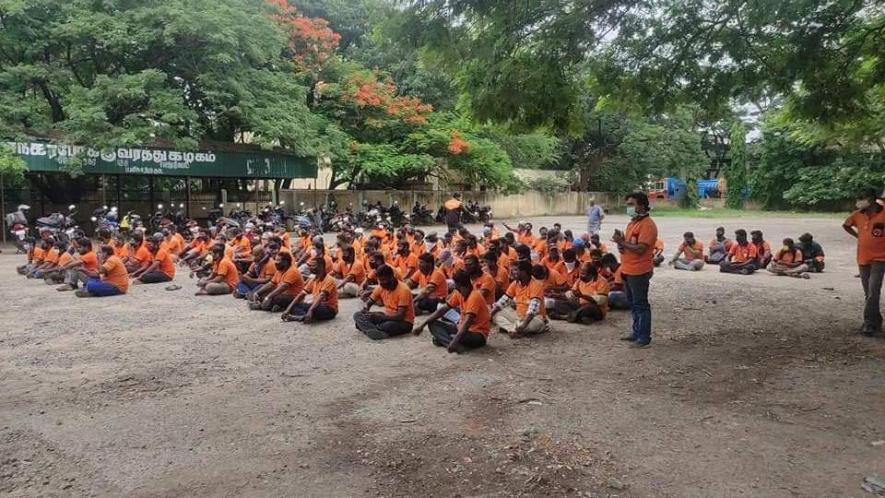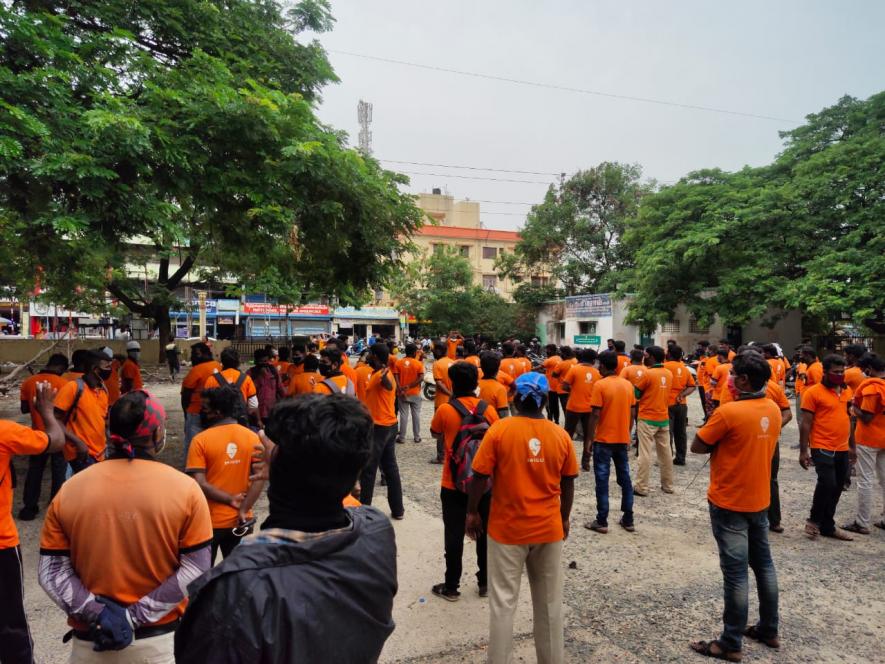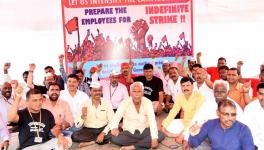Swiggy Executives Continue Strike in Chennai After Drastic Cut in Wages and Increased Targets

The delivery executives of the food delivery app, Swiggy are continuing their strike which began on August 15 in Chennai. The executives have accused the company of setting unachievable targets and reducing delivery charges. The executives are insisting on the restoration of the old payment scheme by cancelling the present reduced structure.
The workers have also made public an audio of a call, reportedly from a representative of Swiggy threatening the executives to withdraw their strike and return to work at the earliest.
The executives have also demanded the scrapping of agreements entered with Shadowfax and Rapido. The food delivery system in Chennai continues to remain disrupted owing to the strike of the executives.
DRASTIC CUT IN WAGES ON DELIVERY
The food delivery company has cut down the delivery charges paid to the executives from Rs 35 to Rs 15 for upto 4 kms, while it has increased the delivery charges to Rs 45 from the customers for the same distance. The company also charges an additional fee of Rs 10 per km above the distance of 4 kms.
“The company initially charged Rs 40 from the customers as delivery charges which has been increased to Rs 45 now. But, in a drastic cut, the company has slashed the payment to the executives from Rs 35 to Rs 15. This is unacceptable as the organisation is snatching away the rightful wage of the executives”, Surya, an executive with Swiggy, told NewsClick.
The executives have held protests in different parts of the city against the implementation of the new payment scheme. Earlier, the company had resorted to lay offs citing the pandemic. The present move of the company on increasing the targets and reducing the wages is aimed at improving their balance sheet, without considering the hardships of the delivery executives.
SEVERE LOSS OF INCOME
With this steep cut, the income of the executives is expected to come down by around 60%. An executive who earned Rs 1,000 per day will end up with less than Rs 450. The move comes at a time when a good number of executives were on the roads delivering food even during the COVID-19 induced lockdown, risking the possibilities of infections. The company has reportedly blocked some of the executives for participating in the strike.
Also read: Second Wave of Layoffs Amid Pandemic Leave Gig Workers’ Unions Enraged
“Considering the continuous hike in petrol prices, the delivery charges must be increased. Instead the company has resorted to cutting the delivery charges. The organisation must also restore the restaurant wait pay which was existing in the earlier pay scheme. We also demand the company tp withdraw the decision of blocking the executives for participation in the strike demanding our basic needs,” added Surya.
This is not the first time the Swiggy executives are striking work. They had participated in a flash strike in December 2018 against the reduction in delivery charges.

'IMPLEMENT 6 DAY WEEK FOR EXECUTIVES'
The executives are also demanding the implementation of six days per week work schedule while the company insists on seven days per week. The working on all seven days in the week is made mandatory for the executives to be eligible for monthly incentive.
“The company should provide incentive for executives who work for six days per week in a month. Compelling to work on all the days takes a heavy toll on the physical and mental well being of the executives,” Surya added.
The striking executives have released a charter of demands including the implementation of a minimum guarantee scheme on the wages payable, continuation of rain time incentive and flexible daily break time.
HIGH AND IMPRACTICAL TARGETS
In order to increase the income, the company has fixed higher targets, the executives allege. The unachievable targets also put the life of the executives at stake, as they rush to deliver and pick up orders to meet their daily goal. The executives are working under hire and fire policy and are not entitled to receive any compensation in the event of a mishap.
Even as the workers remain highly underpaid and overworked, they are finding it difficult to sustain their struggles as they remain unorganised. This lack of collective bargaining is in turn aiding the corporates to continue the overexploitation of the workers.
Get the latest reports & analysis with people's perspective on Protests, movements & deep analytical videos, discussions of the current affairs in your Telegram app. Subscribe to NewsClick's Telegram channel & get Real-Time updates on stories, as they get published on our website.



















